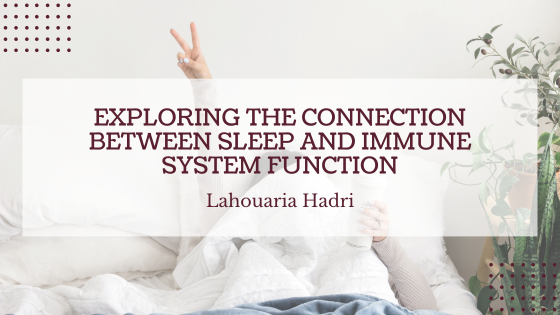The relationship between sleep and immune system function is intricate and bidirectional, with each influencing the other in profound ways. This article explores the relationship between immune system function and sleep patterns, emphasizing how important sleep is to preserving the best possible immune health.
Sleep and Immune System Regulation
- Immune Response: Sleep plays a vital role in regulating the immune system’s response to pathogens and foreign invaders. During sleep, the body produces cytokines, proteins that coordinate immune responses and promote inflammation to combat infections. Natural killer cells, T cells, and B cells—all of which are essential for immune surveillance and pathogen defense—activate more when people get enough sleep.
- Circadian Rhythms: The suprachiasmatic nucleus of the brain houses the master circadian clock, which regulates the immune system’s circadian rhythm in synchrony with the sleep-wake cycle. Disruptions to circadian rhythms, such as irregular sleep patterns or shift work, can dysregulate immune function, leading to increased susceptibility to infections, inflammatory disorders, and autoimmune diseases.
Impact of Sleep Deprivation on Immune Function
- Reduced Immune Response: Chronic sleep deprivation or inadequate sleep compromises immune system function, impairing the body’s ability to mount effective immune responses. Sleep-deprived individuals exhibit decreased production of cytokines, impaired immune cell activity, and heightened inflammation, increasing vulnerability to infections and delaying recovery from illness.
- Increased Inflammatory Response: Lack of sleep throws off the equilibrium between pro- and anti-inflammatory cytokines, which leads to a persistent low-grade inflammatory state that is linked to a number of chronic illnesses, such as diabetes, neurodegenerative diseases and cardiovascular disease. Prolonged inflammation negatively impacts immune function and overall health, highlighting the importance of adequate sleep for immune system homeostasis.
Sleep and Vaccination Response
- Vaccine Efficacy: Adequate sleep is essential for optimal vaccine efficacy, as sleep plays a crucial role in priming the immune system to generate robust immune responses following vaccination. Research has indicated that people who get enough sleep the night before getting vaccinated produce more antibodies, and the vaccine works better than it does for people who do not get enough sleep.
- Sleep Quality and Immune Memory: Quality sleep enhances immune memory, the ability of the immune system to recognize and respond effectively to previously encountered pathogens. Adequate sleep facilitates the formation of immunological memory following vaccination or infection, improving long-term immune protection against recurrent illnesses.
Strategies for Promoting Healthy Sleep and Immune Function
- Prioritize Sleep Hygiene: Restorative sleep is essential for immune system function and can be fostered by creating a sleep-friendly environment, adhering to a regular sleep schedule, and using relaxation techniques before bed.
- Maintain Regular Sleep Patterns: Maintaining regular sleep-wake cycles and avoiding disruptions to circadian rhythms, such as late-night screen exposure or shift work, helps synchronize the body’s internal clock and optimize immune function.
- Treat Sleep Disorders: Treating sleep disorders like sleep apnea or restless legs syndrome with dietary adjustments, behavioral therapy, or medication can improve the quality of sleep and strengthen immunological function.
The relationship between immune system performance and sleep emphasizes how critical sleep is to general health and well-being. Getting enough sleep is critical to sustaining immune function at its best, controlling inflammatory reactions, and strengthening the body’s defenses against infections. People can strengthen their immune systems and increase their resistance to disease by realizing the importance of sleep for immune health and implementing strategies to encourage restful sleep patterns.
